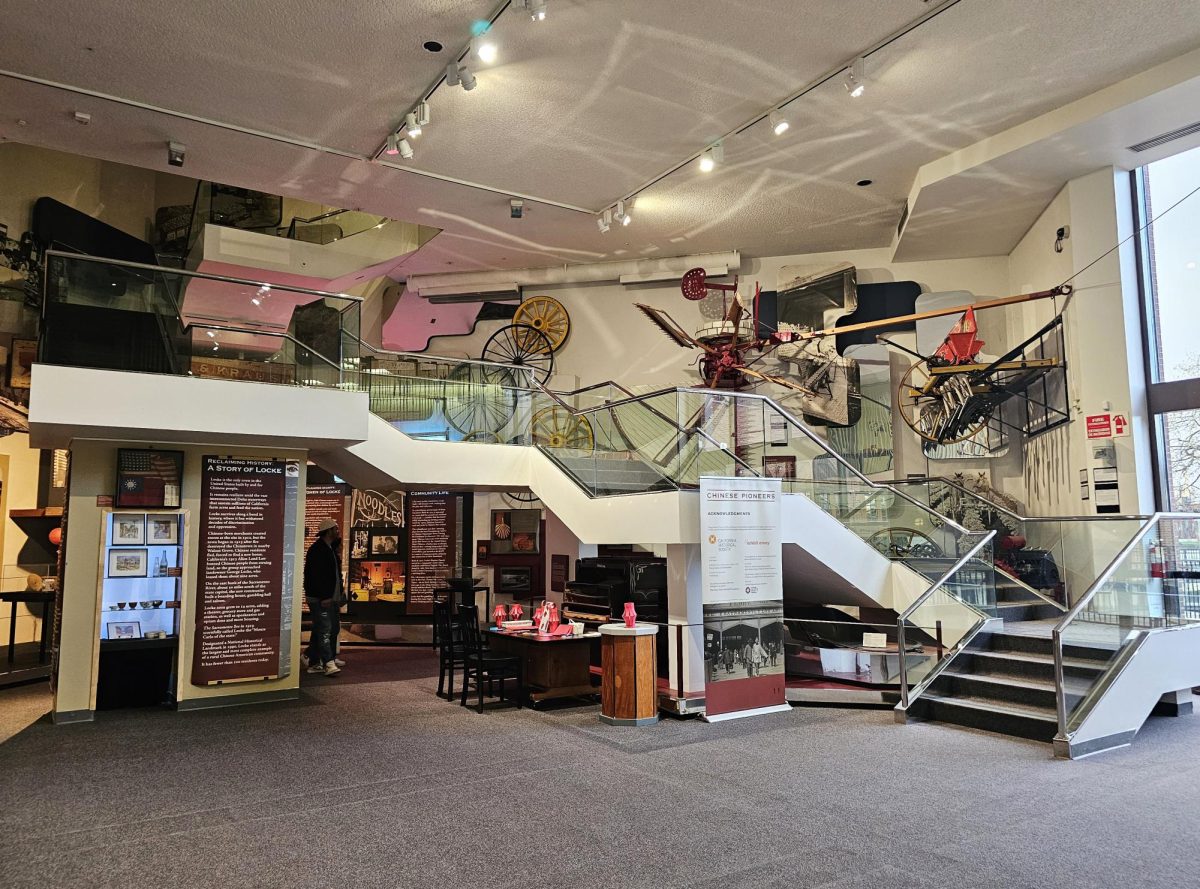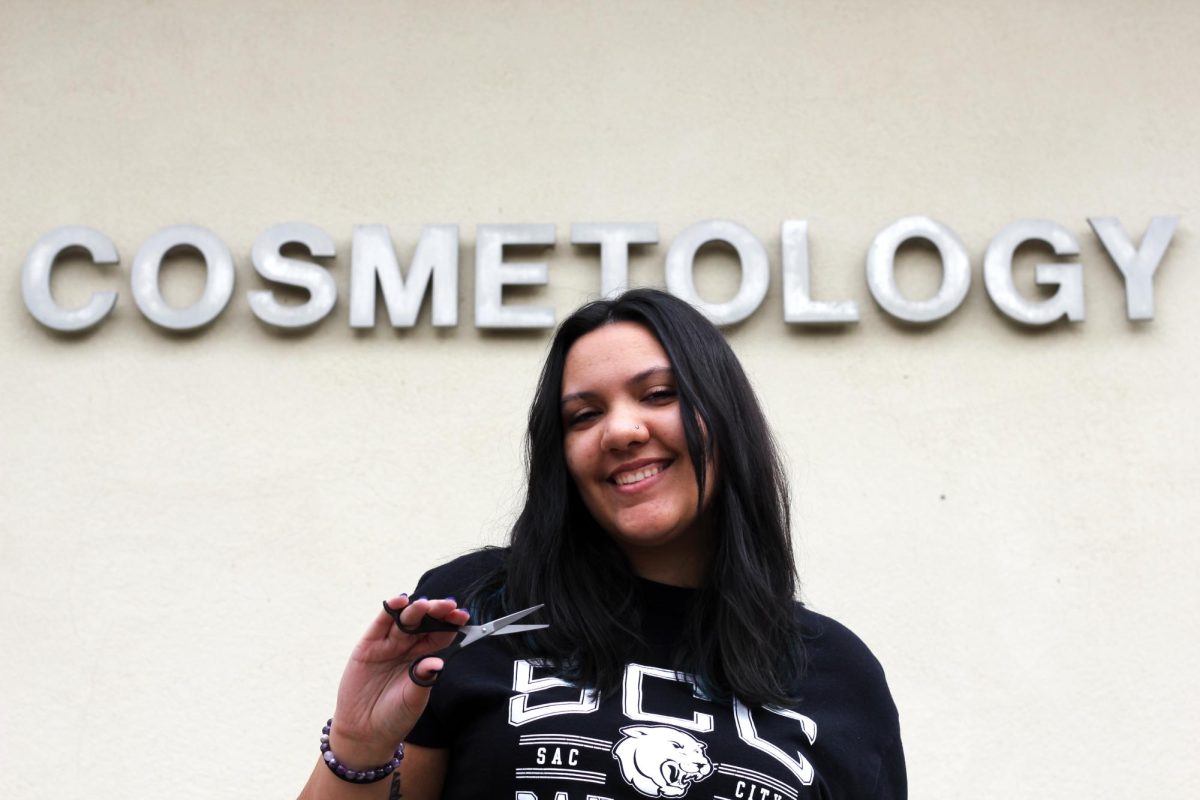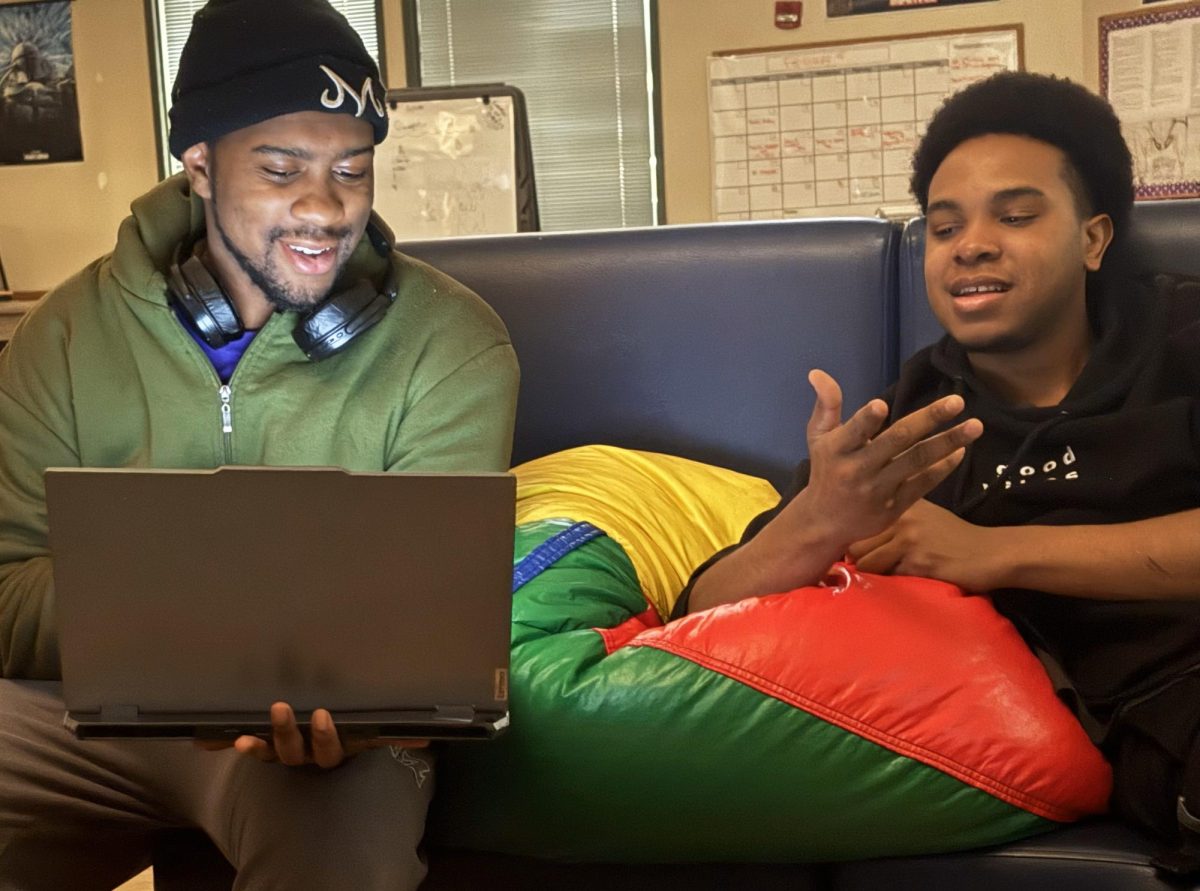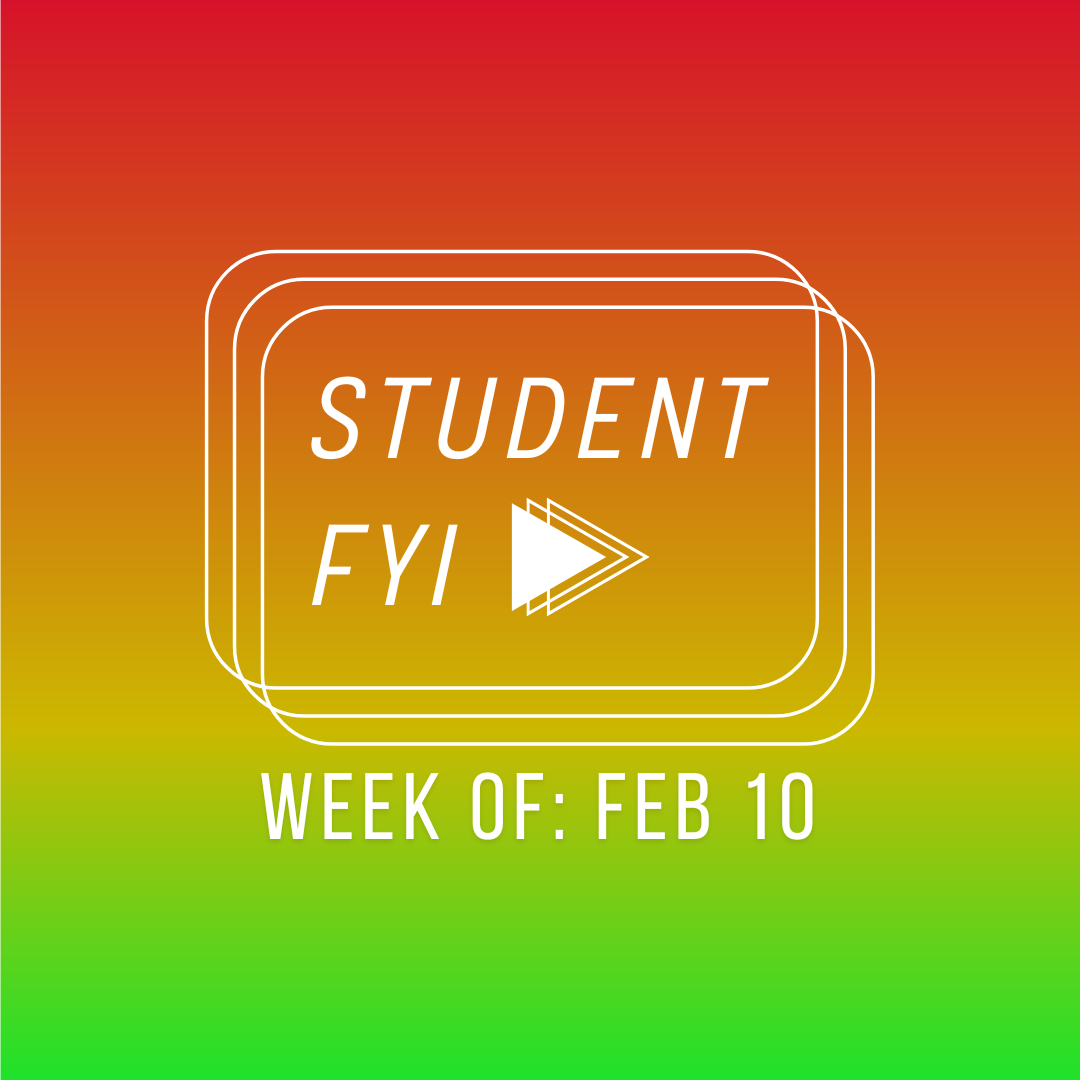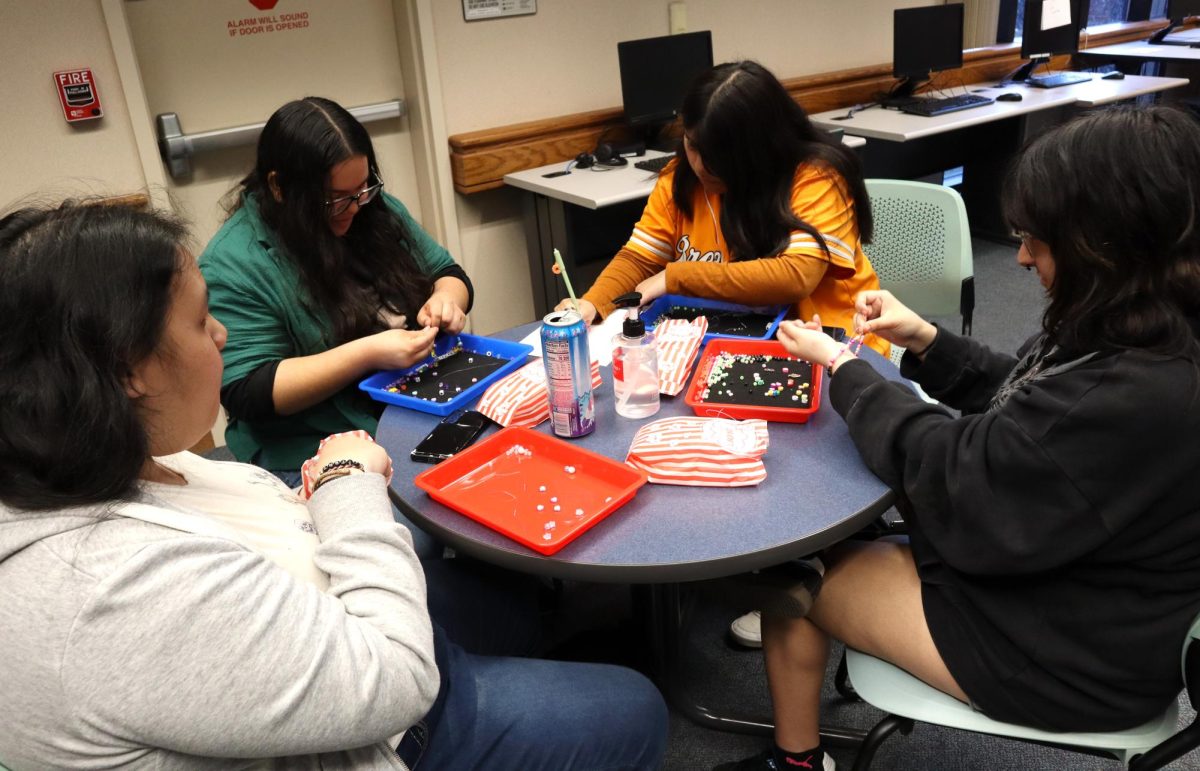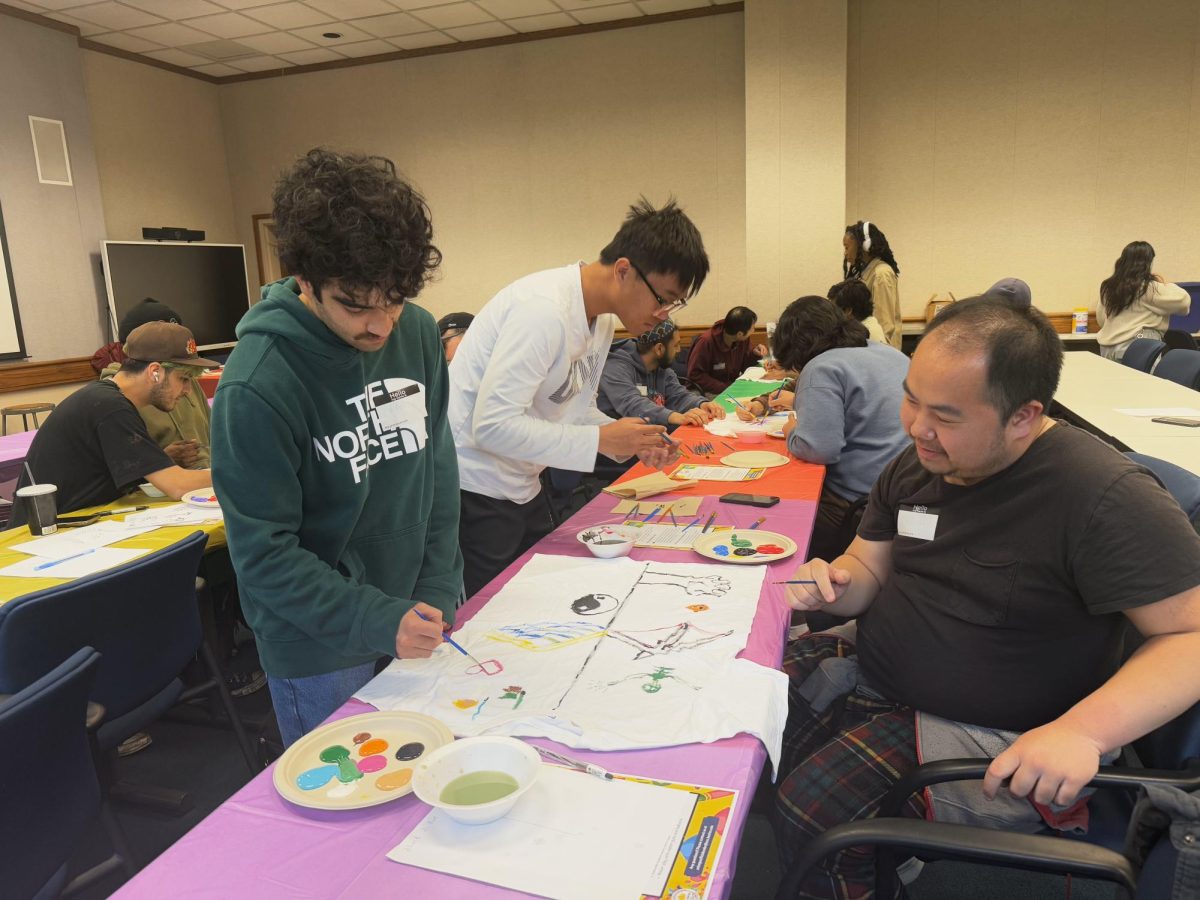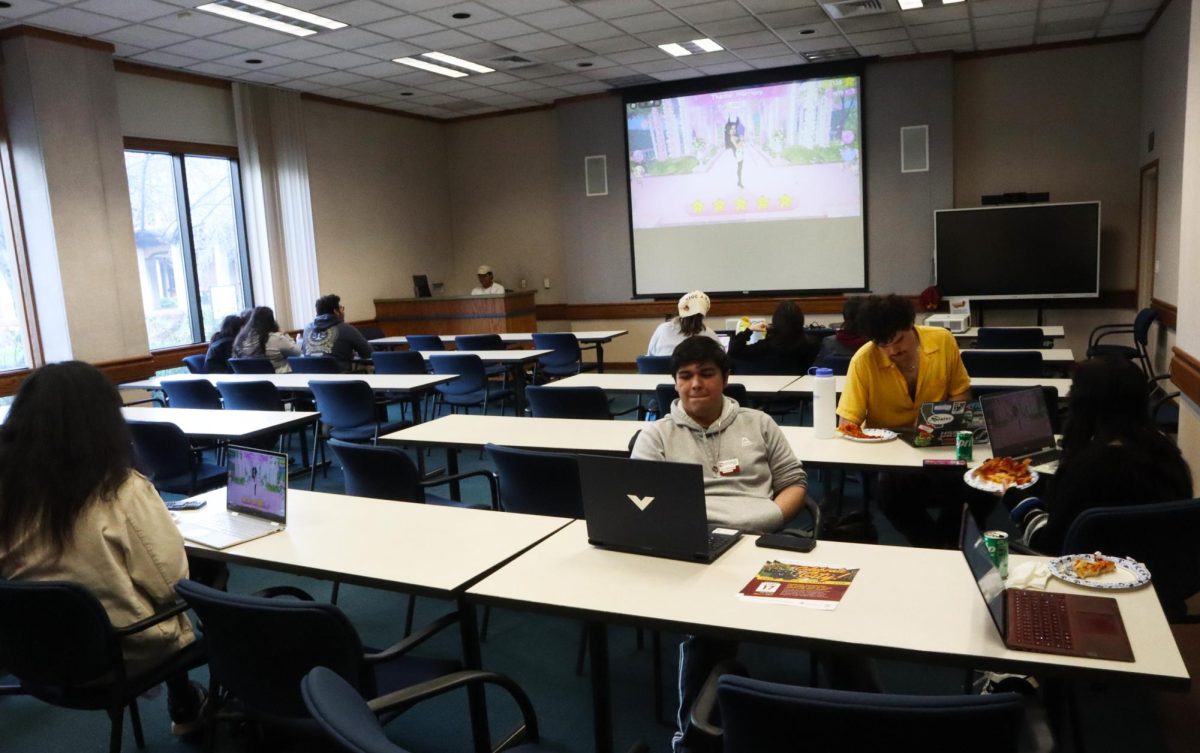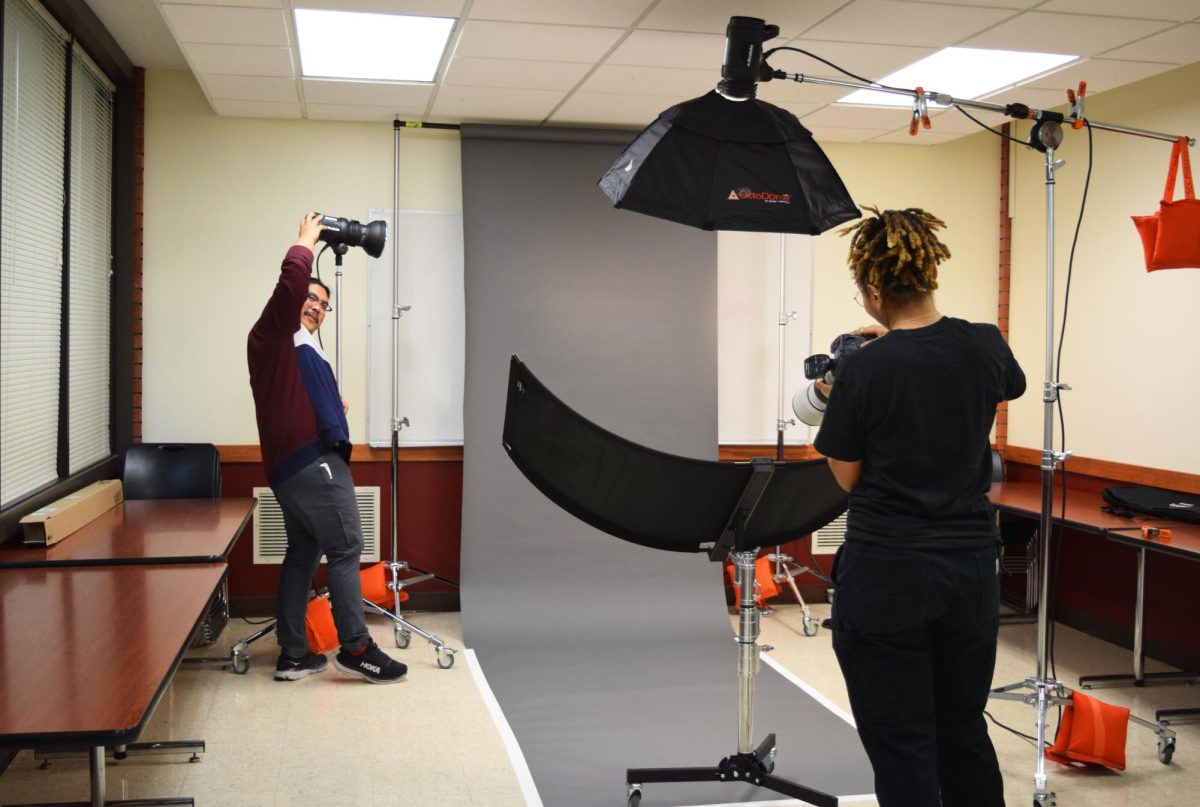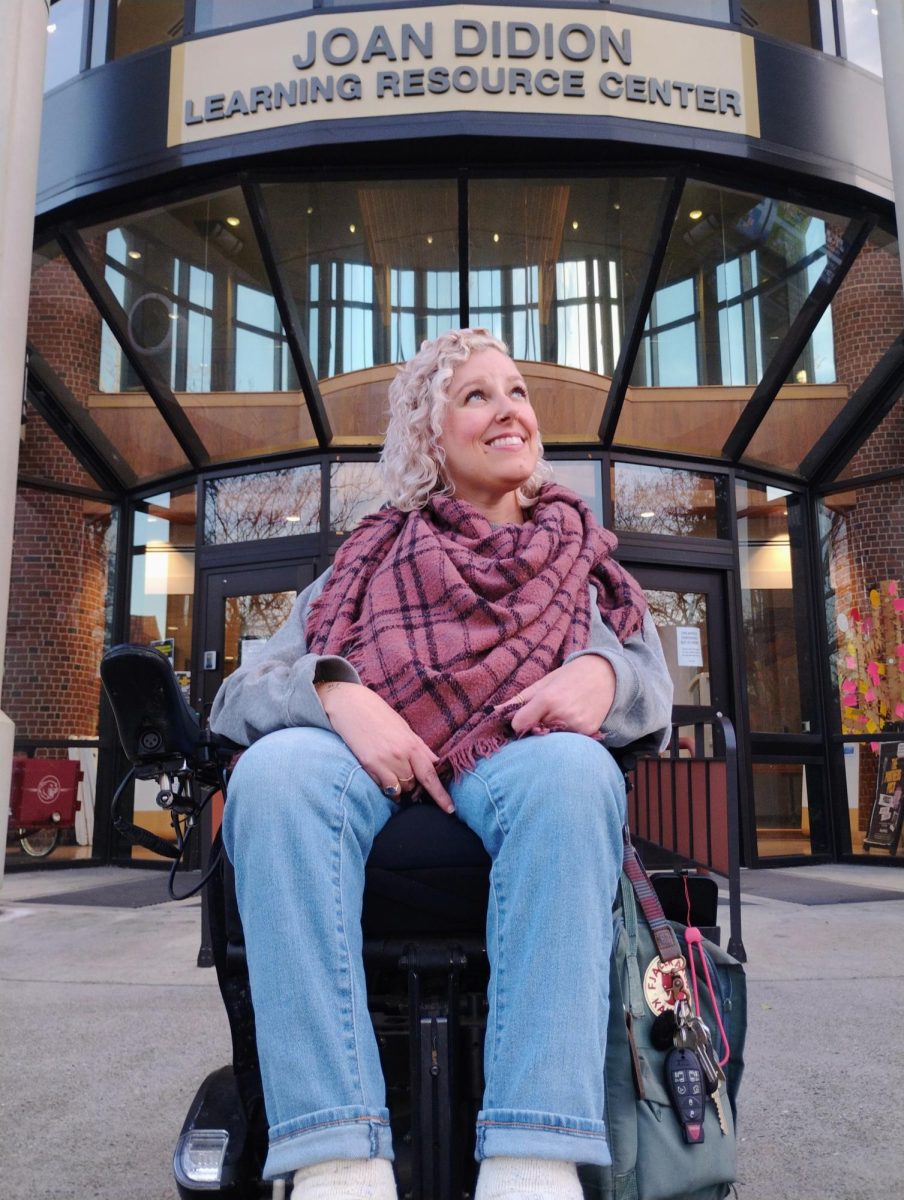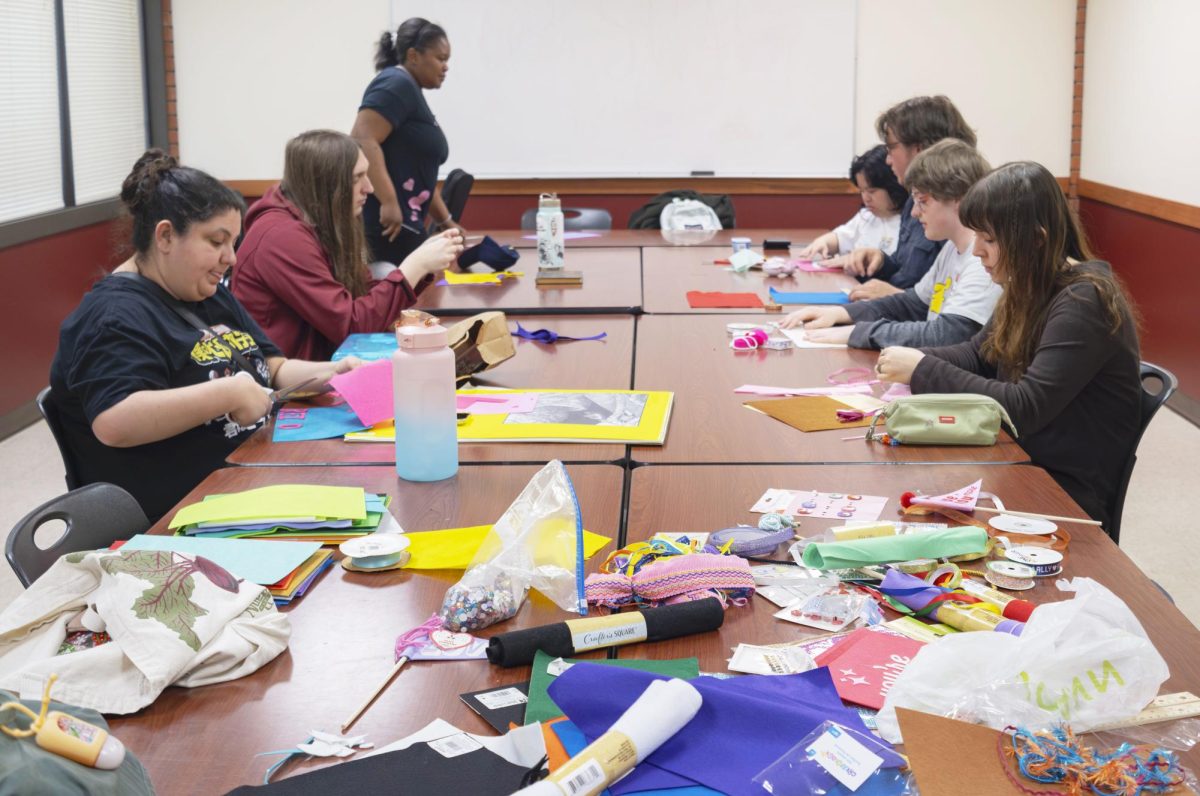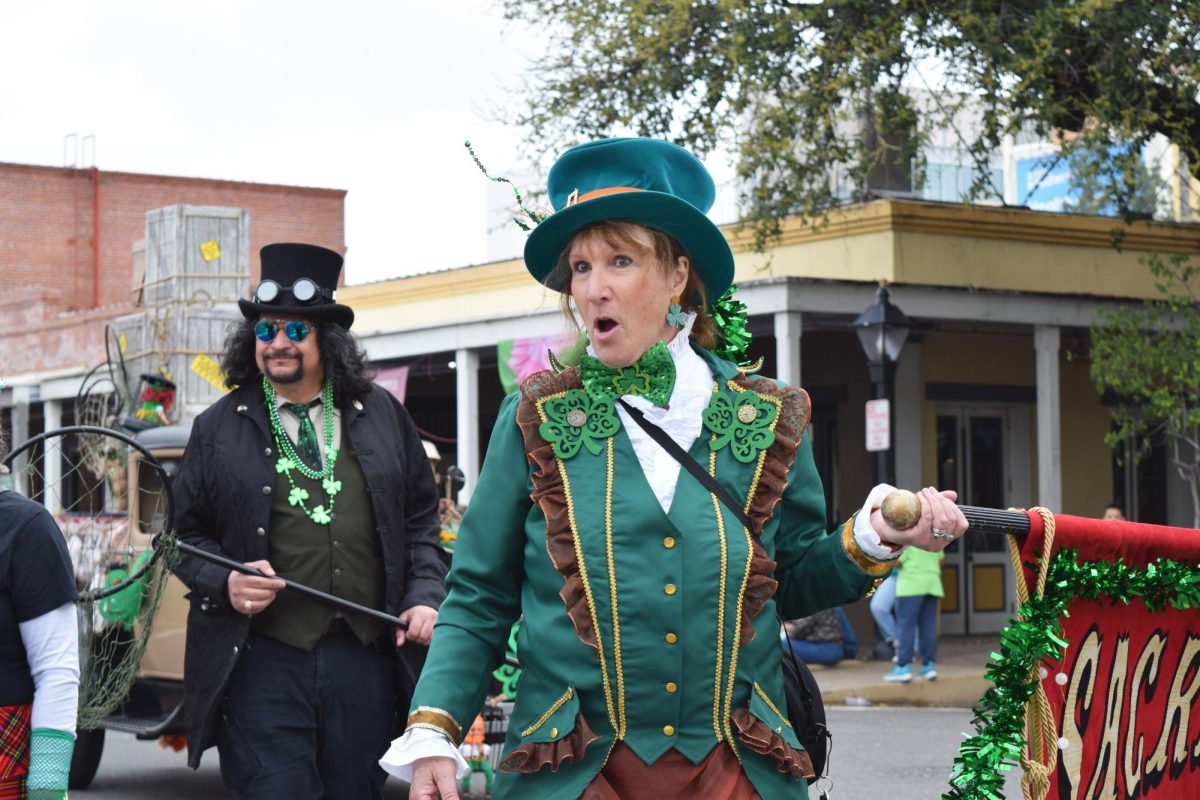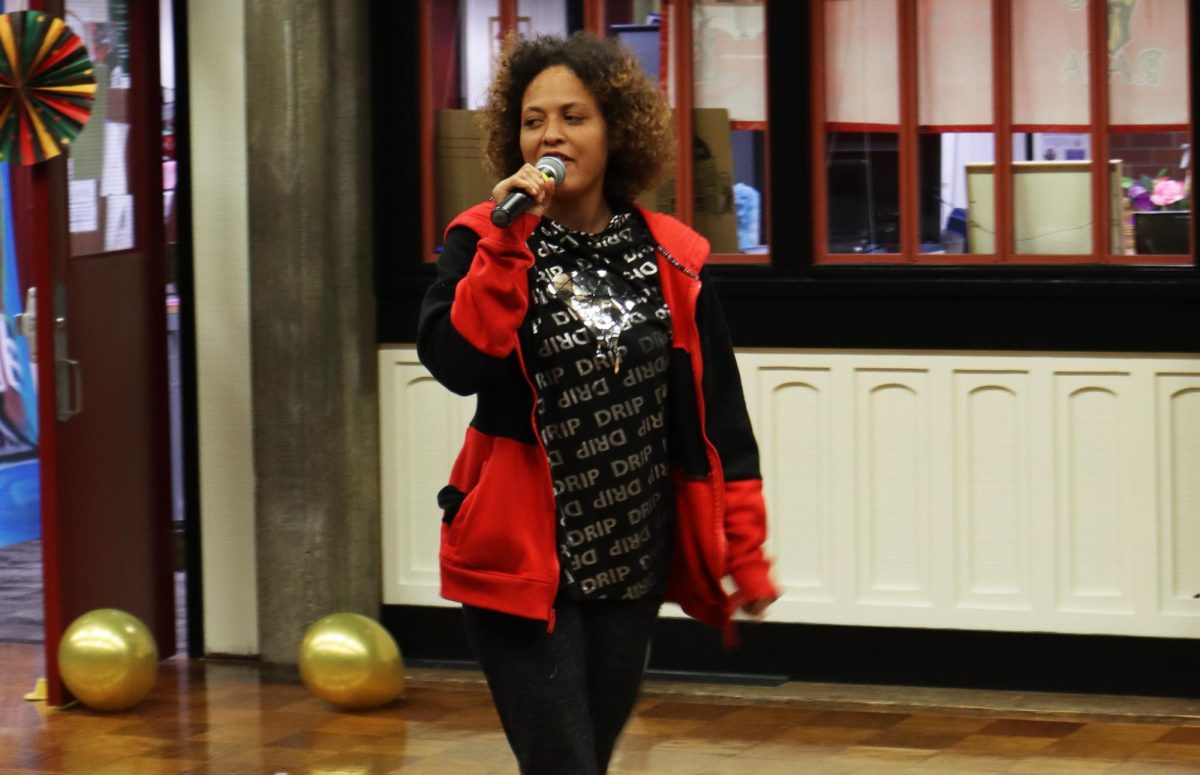Rachel Stewart is a tenacious activist and supporter of the disability rights movement, working to support disabled people of diverse backgrounds, emphasizing the imperativeness of an all-inclusive, intersectional approach. Stewart advocates through her work at City College, alongside her team, as a counselor and coordinator of the WorkAbility III program, which is funded by the Department of Rehabilitation (DOR). She also teaches the class Human Career Development 330 every semester to assist disabled people in navigating their day-to-day lives, future careers and educational planning.
For more than 15 years, Stewart has advocated empowering disabled individuals to reach their fullest potential through her work of conducting policy, program coordinating and teaching as a professor, all the while supporting a disability of her own.
Her advocacy goes back to her time as a student. For Stewart’s dissertation research at UC Berkeley, she interviewed a fellow disabled graduate student named Katie Savin. Savin would not only become Stewart’s partner, but also the founder of UC Berkeley’s first Disability Community Center (DCC). This further inspired Stewart in her own quest of opening vibrant, collaborative, welcoming DCCs on college campuses, including Sacramento City College’s first DCC, which is expected to open this spring. The DCC will be located in rooms 119 and 120 of the Learning Resource Center.
The Express recently spoke with Stewart about her work.
Where did you begin your work in supporting individuals with disabilities?
I’ll take you way back. When I was getting my bachelor’s degree, I went straight to a UC from high school, because that was my ticket out of the house. And prior to then, growing up, I used a wheelchair since the age of five, so it’s really all that I’ve known. But I didn’t really develop a positive view or a strong identity of myself as a person with a disability, or, I prefer to use the term “disabled person” or “disabled woman,” because it’s identity-first language. Which is very different from what we’re taught, like the PC [politically correct] term “people with disabilities”. And I’m like, OK, that’s great, but here’s how I want to identify.
So, when I was at UC Berkeley, I was suddenly immersed in the disability community and realized that I had so much more in common with other people with disabilities than differences. Even if they have very different disabilities from my own, I’m like: I get you, you get me—we have shared experiences. And so that was where I sort of found my calling, where I knew I wanted to do something in the disability field, but I didn’t really know what.
I started working, right out of college, at the Department of Labor Office of Disability Employment Policy. I graduated in 2006, [and] I got a job in a community college in 2014, so the first eight-ish years of my career was all around disability and employment policy. That was really rewarding, but at the same time, I don’t just want to talk about what we should do, I want to do it, you know? I want to build those meaningful connections, have an impact on a person’s life, and not be so far removed by working in policy. Then I got a job at College of Alameda in the Bay Area, then found the opportunity up here at Sacramento City College and I’ve been in this role for almost nine years, which is wild.
What is your role at Sacramento City College as a WorkAbility III Coordinator and DSPS Counselor?
So the WorkAbility III program in the college system is really all about supporting students with disabilities that are currently receiving services from the Department of Revitalization in making a transition to employment. What I’ve seen over the last several years, is that I have a lot of students who come to me that are even older students. [Students] who don’t quite know what it is that they want to do, or maybe they’ve gone to school for many years but don’t really know what’s out there, or don’t know what would fit in with their disability. So, where can they highlight their strengths? That’s a lot of the work that I do, is recognizing and being like, OK, people with disabilities are so stigmatized in our society that nobody wants to talk about it. It’s like this dirty word, and people are like, “Oh, don’t worry, it’s OK. Your case is more confidential and nobody will find out what your disability is,” like there’s this shroud of secrecy around it. And I’m like “Dude, let’s come out of the closet.”
We have so much to offer the community. We have so much to offer the workplace. We have so much to offer the educational environment. We need to be celebrating that and trying not to be ashamed or embarrassed for not knowing what it is that we need in order to be successful in school or in work.
So a lot of the work that I’ve been doing with WorkAbility is centered not just around “Here’s how you write a resume, here’s how you apply to jobs and interview well,” but it’s also “How do you embrace all the different aspects and identities of who you are?” and really use those experiences to highlight your strengths and recognize your skills. I think that there are so many skills that we gain just by the nature of having to navigate a world that’s not built for disabled bodies or neurodivergent minds.
More recently, I’ve noticed a shift in the folks who come to me, that they are looking for that community—they’re looking to find other people who can understand their experience, [and] they’re not embarrassed to talk about their disability. Something’s changing, the last two years it’s been drastically different. I think a big part is social media and a lot of influencers with disabilities, and I’m scared that a lot of this stuff is going to go backwards.
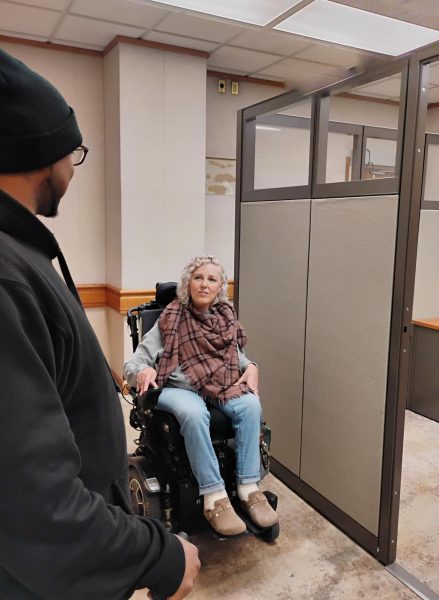
When individuals come to you, do they ever mention that they desire a community space for disability support because they don’t feel like they’re getting the support they need from their own families?
I think for the large majority of us [disabled individuals], our immediate family members don’t have disabilities. I do hear when it is going well, but I hear over and over again that there’s a need to have a space of belonging where people can feel understood. This is something that I think is really important because in other spaces on campus, especially in academia, ableism is rampant.
My dissertation research really focused on disabled student activism to create disability cultural centers. I think prior to the last year and a half, every single disability cultural center was created as a direct result of disabled student activism. It wasn’t something that the campus said, “Oh, maybe we need to create this.” It was because disabled students were fighting and saying, “We need this. We are sick of dealing with the ableism, we need a place where we can let our hair down and be unapologetically disabled, show up and be accepted.”
I heard about your involvement in the recent development of Sacramento City College’s first Disability Cultural Center. What resources might the center provide beyond the campus’ existing support of Disability Services and Programs for Students (DSPS)?
Great question. We have a DCC advisory group that’s comprised of about 50% students with disabilities, and then the other 50% are staff, faculty [and] administrators, many of whom identify as disabled or neurodivergent. So, so cool. I’m hopeful that there can be a lot of direction and guidance provided by the DCC advisory group.
I’d like part of the proposal for a [DCC] space that is really focused a lot on the physical hangout space. Where there’s fidget toys, [and] different headphones for people that need more quiet—we really hope to have enough space to have a sensory room too. Also putting on events–movie showings, comedy shows, speaker series, discussion groups on different topics pertinent to the disability community, and to also be extremely mindful that no matter what we’re doing, it’s also an intersectional approach. So partnering with the other cultural centers on campus.
I’ve been trying to push across the campus that if you have a non-apparent disability, please—if you feel safe and comfortable, disclose that, because there’s so much power in representing a group. I know for me when I’m in a space, I always am like the only apparently disabled person, and when I hear somebody else “out” themselves as having whatever it is, like chronic illness, neurodivergence or whatever—I’m just like, like silent me, like little me is jumping up and down and very happy and excited because that representation matters you know? And we need that representation to bring visibility to historically, very stigmatized experiences.
Revisiting the word and issue you had referred to earlier, “ableism”—how might ableism, by definition, be occurring on campus?
I would say ableism is the waters we swim in, right? This is pervasive throughout all aspects of our society, it’s not unique to campus. But if we’re looking specifically at the campus environment, I see it as kind of taking place on these three levels. You have systemic or institutional ableism, of not mentioning disability when DEI [Diversity, Equity and Inclusion] comes up. Not mentioning them as a group that is also in need of equity-focused initiatives. We, as disabled people, have to go through this certain level of administrative burden to get what we need, to have that equitable access.
Interpersonal ableism could be like, microaggressions against students, or questioning someone who doesn’t have a [physical] impairment disability. Also, other folks that are neurodivergent or autistic, being excluded from group projects, being the last person picked. And the third layer, that I think is one of the most detrimental: internalized ableism, believing negative societal beliefs about disability as being true, really internalizing those beliefs.
I think I’ve never met a disabled person who doesn’t have some level of internalized ableism, I still deal with it every day. It still rears its ugly head in the back of my mind, and it’s something that I’m having to unlearn continually, from years and years of being socialized to understand disability as being a bad thing.
What helps you transcend this discrimination of ableism, helps bring you the most joy in assisting students with disabilities?
I think it’s hearing from [students] that are like, oh my god, I’m so excited to have this space on campus, I need this, we need this so much. I think that’s huge. It’s not just something I’m doing because I think it’s important, it’s important to students, and that to me is so rewarding—just hearing that impact, that I’m making a difference.
This Q&A has been edited for length, clarity and flow.
Express Exchange is a Q&A series that highlights the people in the Sacramento City College community. Each conversation explores unique experiences, challenges these people overcame and perspective into what matters most in their personal journey. This series provides a space to connect and share meaningful experiences. Have an idea of someone for us to interview? Contact our editors at llentz.express@gmail.com and njeffery.express@gmail.com








